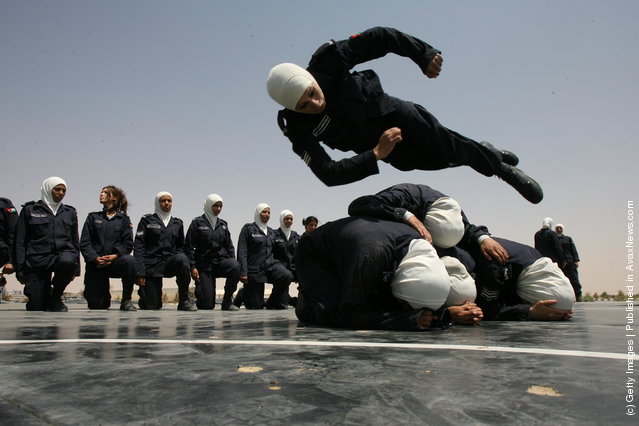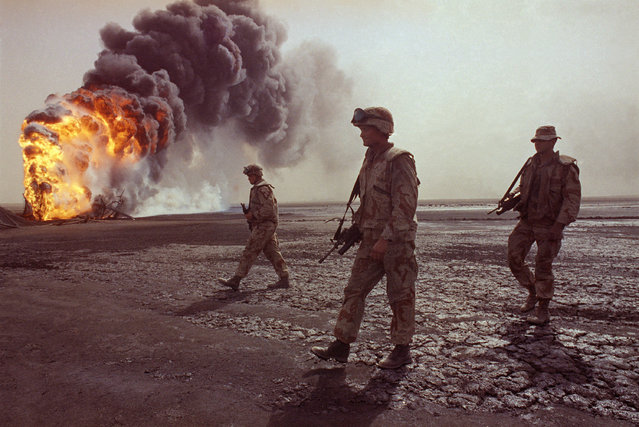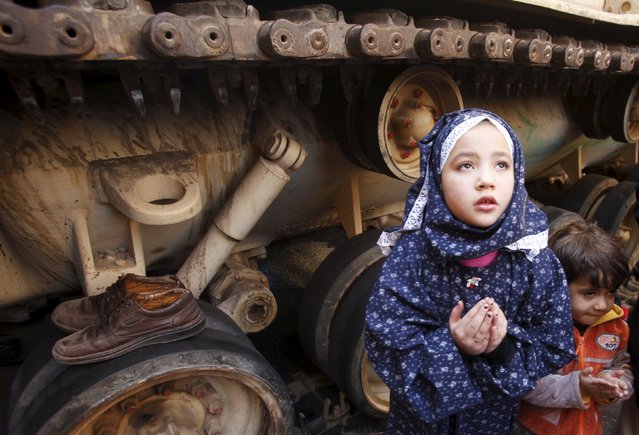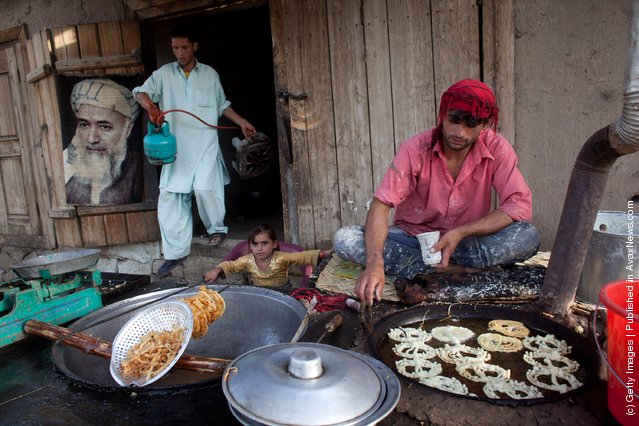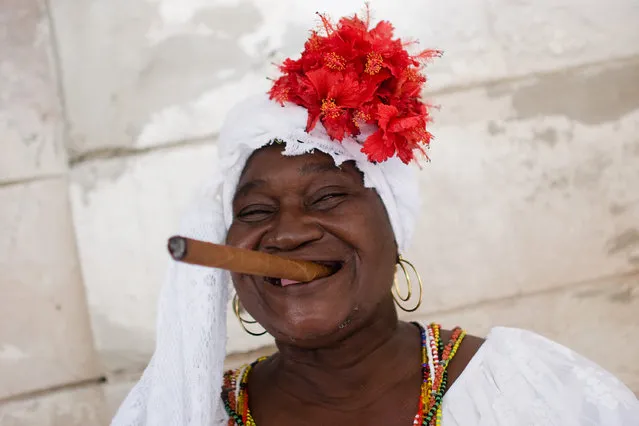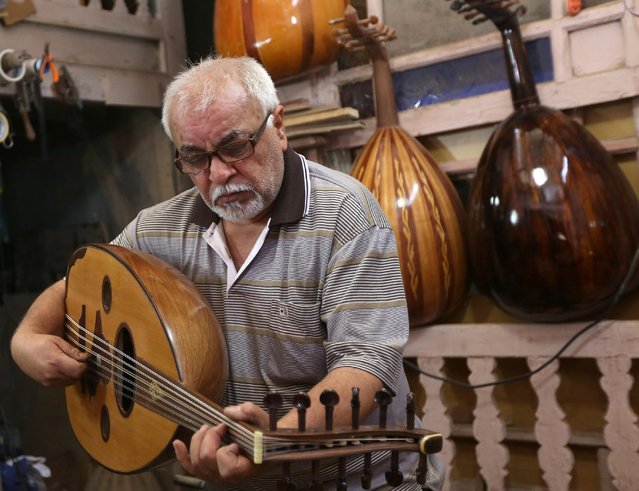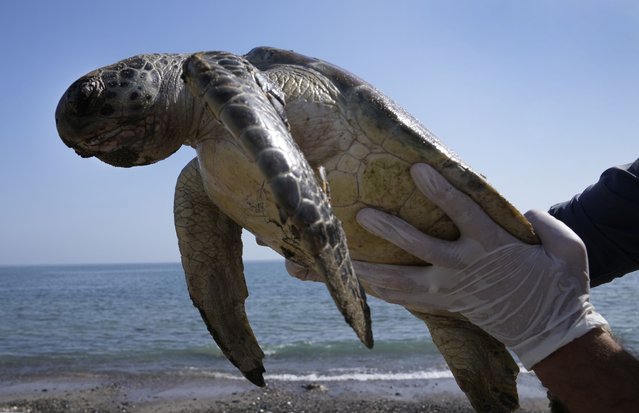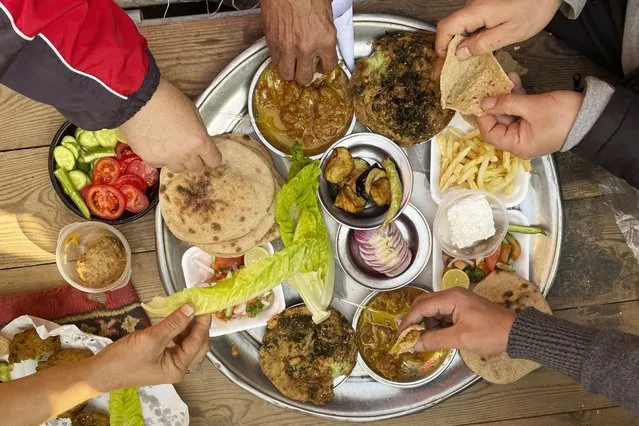
Egyptian workers eat on a truck in Cairo, Egypt, Sunday, January 22, 2023. Egypt is in an economic crisis is partly caused by the yearlong grinding Russian invasion of Ukraine. But the conflict in Europe has also exposed the frailties of an economy suffering from decades of mismanagement, turmoil from its 2011 Arab Spring popular uprising, years of militant attacks and then, the coronavirus pandemic. (Photo by Amr Nabil/AP Photo)
09 Mar 2023 03:36:00,post received
0 comments

